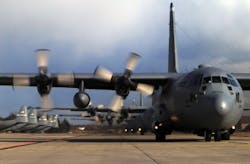Orbital’s Cygnus unmanned resupply spacecraft employs Neptec’s TriDAR technology
OTTAWA, Ontario, 25 July 2011. Orbital Space Science Corp. officials needed sensors for its Cygnus spacecraft capsule, which will resupply the International Space Station (ISS) as part of the Cargo Resupply Services Program. They found their solution at Neptec Design Group in Ontario, Canda. TriDAR combines high-precision, near-field triangulation with a long-range Time-of-Flight (LiDAR) system to provide automated, real-time visual guidance for navigation, rendezvous, and docking procedures.
Neptec Design Group engineers will deliver 13 TriDAR rendezvous and docking sensors in support of the initial round of Orbital’s resupply flights for the ISS.
“We are thrilled to be a part of this exciting next step of space exploration,” says Mike Kearns, vice president of Space Exploration at Neptec. “With our operations on STS-135 wrapping up, we are proud to say TriDAR exceeded our expectations on its three separate shuttle flights and we are pleased to announce today that the system will be an integral part of the ISS fleet of resupply vehicles.”
Neptec engineers have been developing the TriDAR vision system for nearly a decade, with assistance from the Canadian Space Agency and NASA.
“The TriDAR program is a textbook example of what can be done when government and the private sector work together,” explains Iain Christie, Neptec president and CEO. “This week is bittersweet for all of us involved with the space program as we wrap up the Shuttle era, which has been a central part of our lives. But this announcement shows we are taking our knowledge and experience from that program and continuing to make important contributions to the Space Station and beyond.”
